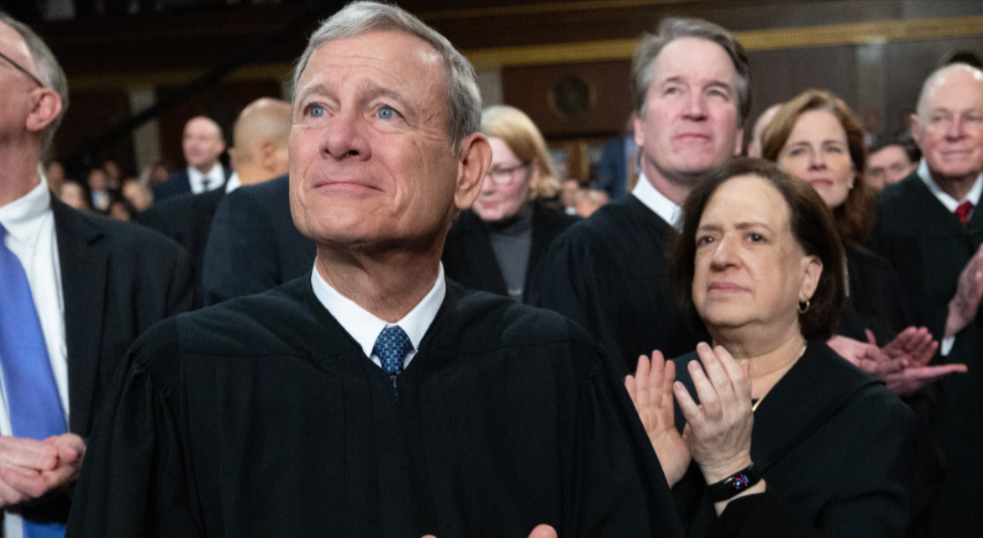Supreme Court Rejects Fire Chief’s Religious Freedom Case

Ronald Hittle, the former fire chief of Stockton, California, was dismissed from his position following misconduct allegations, including an anonymous accusation describing him as a "corrupt, racist, lying, religious fanatic."
A key factor in his termination was his participation—along with other managers—in a church-sponsored summit for Christian leaders during work hours.
Hittle sought legal action, claiming that his dismissal was due to his Christian faith. However, lower courts determined that his case lacked sufficient merit to move forward, as reported by USA Today.
Hittle argues that the Supreme Court's criteria for evaluating workplace discrimination cases—established more than 50 years ago—should be reconsidered.
However, on Monday, the Supreme Court declined to take up his case, thereby avoiding a possible legal battle over workplace religious discrimination. This decision comes as the Court is also deliberating on cases related to religion in education and religious tax exemptions.
Justices Clarence Thomas and Neil Gorsuch expressed their willingness to hear the case. Thomas pointed out that Hittle had provided substantial evidence of discriminatory intent and that the case could have offered clearer guidelines on when workplace discrimination claims should be allowed to proceed, according to the outlet.
Hittle was removed from his position in 2011 after a city investigation cited various concerns, including lack of effectiveness and judgment, failure to report time off, favoritism, and attending a religious event during work hours, among other issues.
The event in question—a church-sponsored summit for Christian leaders—was something Hittle attended as part of the city's directive for leadership training, according to USA Today.
Hittle insists that his attendance at the Global Leadership Summit was the primary reason for his termination, asserting that the deputy city manager accused him of being associated with a "Christian Coalition."
“When an employer acts for a discriminatory reason, it cannot automatically avoid liability just because lawful reasons also motivated it,” his legal representatives argued before the Court.
The city maintains that Hittle is misinterpreting the appeals court’s ruling and argues that there is no reason to revisit the landmark 1973 decision in McDonnell Douglas Corp. v. Green, a "settled touchstone of employment-discrimination law."
“The City’s reasons for terminating (Hittle) were well-documented and entirely appropriate for the Ninth Circuit to rely upon,” city attorneys stated, per USA Today.
Earlier this month, the U.S. Supreme Court also declined to review an appeal challenging Delaware’s prohibition on assault-style rifles and large-capacity ammunition magazines, as well as a case concerning Maryland’s handgun licensing laws.
By declining to hear these cases, the Court avoided ruling on two major issues related to gun rights.
The justices rejected an appeal from gun rights advocates seeking to overturn Delaware’s ban on “assault weapons” and magazines exceeding 17 rounds, after a lower court refused to issue a preliminary injunction.
Reuters noted that such firearms have been involved in multiple mass shootings in the U.S., although FBI crime data indicates that most gun-related homicides involve handguns.
The justices also refused to hear an appeal from the gun rights group Maryland Shall Issue and other plaintiffs, who challenged a lower court’s ruling that upheld Maryland’s handgun licensing law as constitutional under the Second Amendment.
While the justices declined to hear these two cases, they have yet to take action on separate appeals challenging Maryland’s ban on assault weapons and another case in Rhode Island regarding restrictions on large-capacity ammunition magazines.
With a 6-3 conservative majority, the Supreme Court has consistently interpreted gun rights through an originalist lens in major decisions since 2008.
Delaware’s firearm regulations, enacted in 2022, prohibit several types of semi-automatic "assault" rifles, including the AR-15 and AK-47, but allow existing owners to retain them under certain conditions. The law also bans large-capacity magazines unless they were owned before its passage.
Those challenging the law include state residents attempting to purchase the prohibited firearms or magazines, a firearms dealer, the Firearms Policy Coalition, and the Second Amendment Foundation.